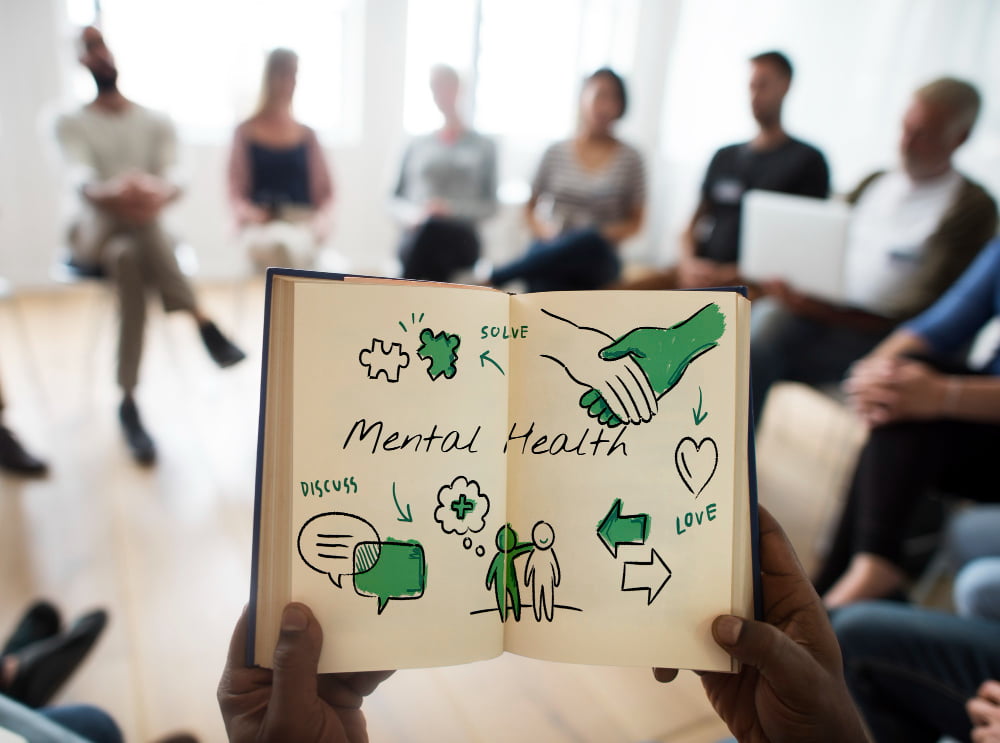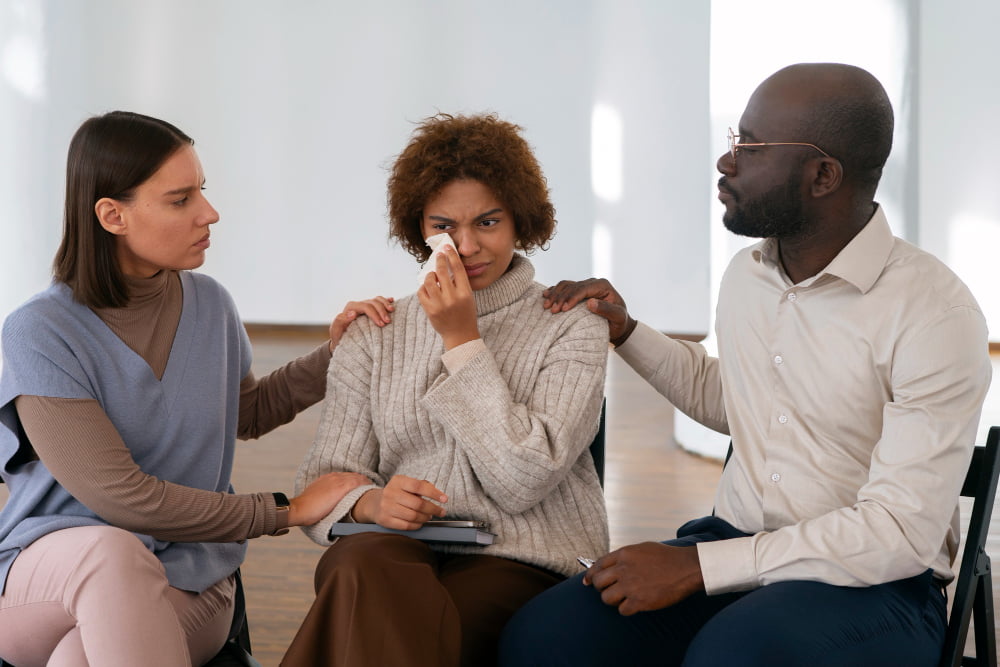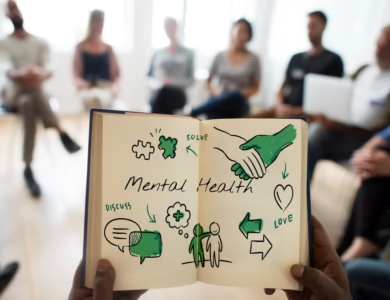11 Actionable Strategies for Successful Mental Health Awareness Events

Are you striving to make your mental health awareness events truly impactful? You’re not alone. Many organizers face the challenge of engaging their audience and making a lasting impression. But don’t worry – we’ve got you covered.
What if you could host events that not only educate but also inspire action and support? In this blog post, we’ll share 11 actionable strategies to elevate your mental health events. Whether you’re planning an intimate gathering or a large community fair, these strategies will help you create memorable and successful mental health awareness events.
Effective Strategies for Organizing Influential Mental Health Awareness Events
Discover the key elements to planning successful mental health awareness events that leave a lasting impact. From educational seminars to community wellness activities, we’ve gathered the best practices to ensure your event resonates with participants. By incorporating these mental health awareness strategies, you can enhance engagement and foster a supportive environment.
Let’s dive into our top event ideas designed to promote understanding and provide meaningful support for mental health, ensuring your event stands out and makes a difference.
Mental Health Awareness Month
May is recognized as Mental Health Awareness Month, a time dedicated to raising awareness and breaking the stigma surrounding mental health. Organizing events during this month can significantly amplify efforts to educate and support individuals dealing with mental health issues. It’s an ideal opportunity to bring communities together and foster conversations about mental health.
Why is May such a pivotal time for mental health awareness events? The national focus during this month creates a supportive backdrop, making it easier to engage participants and garner media attention. You can leverage this heightened awareness to host impactful events like workshops, panel discussions, and wellness fairs. These activities can provide valuable information, resources, and a sense of community for attendees.
Promoting mental health in May through diverse and inclusive events ensures that more people can access the help and support they need. Consider collaborating with local mental health professionals and organizations to enhance the credibility and reach of your events. By doing so, you not only educate the public but also create a network of support that extends beyond the month of May.
Furthermore, sharing personal stories and testimonials during your May mental health events can deeply resonate with participants, fostering empathy and understanding. This approach helps humanize the discussion around mental health, making it more relatable and impactful for everyone involved.
1. Educational Seminars and Workshops
Hosting mental health seminars and educational workshops on mental health topics can be a cornerstone of your mental health awareness events. These sessions provide valuable information and create a platform for learning and discussion. By inviting mental health professionals to speak, you can ensure that the content is both credible and impactful.
What makes these seminars and workshops so effective? They offer attendees practical knowledge about common mental health issues, coping strategies, and available resources. This direct engagement with mental health experts can help demystify mental health conditions, reducing stigma and promoting a deeper understanding.
Organizing mental health awareness seminars that feature a variety of topics—from stress management to dealing with anxiety and depression—ensures that you address the diverse needs of your audience. Interactive elements, such as Q&A sessions and group activities, can further enhance the learning experience and make the information more relatable.
Educational workshops on mental health can also include hands-on activities that teach coping techniques and self-care practices. By providing a space where attendees can actively participate, you create an environment conducive to learning and personal growth. These informative mental health events not only educate but also empower individuals to take charge of their mental well-being.
Moreover, promoting these mental health education workshops as part of your event lineup can attract a wider audience, including those who might be seeking specific information or support. By emphasizing the educational value and practical benefits, you can ensure that your mental health awareness events are both impactful and well-attended.
2. Mental Health Screenings
Organizing free mental health screening events can be a vital component of your mental health awareness initiatives. These events provide participants with the opportunity to receive confidential assessments from licensed professionals, offering a crucial first step toward understanding and managing their mental health.
Why are mental health screenings so important? Early detection of mental health conditions can lead to timely intervention and support, which can make a significant difference in individuals’ lives. By offering mental health evaluation services, you help identify issues before they escalate, allowing for appropriate and effective treatment plans to be put in place.
Community mental health checkups can also help break down the barriers to seeking help. Often, the stigma or lack of access prevents people from getting the support they need. By making screenings accessible and free, you encourage more individuals to take proactive steps toward their mental well-being.
Mental health assessment days can be tailored to different demographics, ensuring that everyone—from children to the elderly—receives appropriate care. Additionally, these events can serve as a gateway to further resources and support, linking individuals to local mental health services and professionals for ongoing care.
Promoting mental health diagnostic events as part of your awareness efforts not only raises awareness but also actively contributes to the well-being of your community. By integrating these screenings into your mental health awareness events, you create a comprehensive approach that addresses both education and direct support.
3. Community Wellness Fairs
Planning community wellness events can significantly enhance your mental health awareness efforts. A comprehensive mental health and wellness fair that includes a variety of activities can draw in diverse participants and provide holistic support. By offering yoga sessions, mindfulness meditation, nutritional advice, and stress management workshops, you promote overall well-being and foster a supportive community environment.
How do these wellness fairs benefit your community? They provide a space where individuals can explore different aspects of mental and physical health in a relaxed and engaging setting. Community wellness events can attract those who might not attend a traditional mental health seminar but are interested in holistic health approaches.
Mental health and wellness fairs can also serve as a platform for local health professionals and wellness practitioners to share their expertise. By including diverse wellness fair activities, you cater to various interests and needs, making the event appealing to a broader audience.
Community mental health days that focus on wellness can also break the monotony of conventional mental health awareness events, making the topic more approachable and less intimidating. These fairs encourage community engagement, helping to build a network of support among participants.
Incorporating holistic health fairs into your event lineup not only raises awareness but also promotes a proactive approach to mental health, encouraging attendees to adopt healthier lifestyles and self-care practices. By integrating these elements, you create an enriching and impactful event that resonates with your community.
4. Art Therapy Sessions
Hosting art therapy sessions can be a transformative element of your mental health awareness events. These creative mental health events provide participants with the opportunity to express their emotions and experiences through activities like painting, drawing, or sculpting. Art therapy for mental health is a powerful tool, offering a unique way for individuals to process feelings and reduce stress in a supportive environment.
What makes art therapy so effective? It allows individuals to explore their inner world and express themselves non-verbally, which can be especially beneficial for those who find it challenging to articulate their thoughts and emotions. Therapeutic art workshops can foster a sense of accomplishment and self-discovery, promoting healing through creative expression.
By incorporating expressive art events into your mental health awareness initiatives, you create a safe space for participants to engage in self-reflection and emotional release. These sessions can be particularly helpful for individuals dealing with anxiety, depression, or trauma, as the process of creating art can be both soothing and enlightening.
Mental health and art therapy sessions can also enhance community bonds. When participants share their creations and experiences, it can lead to greater empathy and understanding among attendees. This communal aspect of healing through art reinforces the supportive atmosphere of your mental health awareness events, making them more impactful.
Overall, art therapy sessions are an excellent way to diversify your event offerings and provide meaningful, therapeutic experiences that support mental well-being. By integrating these sessions into your event lineup, you can help participants find new ways to cope and thrive.
5. Mental Health Walks and Runs
Organizing mental health awareness walks and charity runs for mental health can significantly boost your mental health awareness events. These activities not only raise funds for mental health causes but also foster community spirit and promote physical activity. By participating in these events, community members can show their support for mental health awareness while engaging in a healthy, communal activity.
How do these walks and runs benefit your cause? They provide a visible, public platform to share information about mental health resources and support networks. During these events, you can distribute educational materials, host informational booths, and encourage conversations about mental health, making it a multi-faceted approach to awareness.
Mental health fundraising events, such as community mental health walks, can also draw media attention, further amplifying the message and reaching a broader audience. These events can be structured to include various activities, such as speeches from mental health advocates, warm-up exercises led by fitness instructors, and post-walk/run celebrations with local vendors.
Awareness runs for mental health and promotes mental health through fitness, highlighting the connection between physical well-being and mental health. By encouraging participation in these events, you help reinforce the importance of maintaining overall health. Overall, mental health walks and runs are an engaging way to bring people together, raise awareness, and support mental health initiatives in your community.
6. Support Group Meetings
Facilitating mental health support groups can be a crucial component of your mental health awareness events. These peer support meetings offer a safe space for individuals to share their experiences and provide mutual support. By organizing support group events, you create an environment where participants can openly discuss their mental health challenges, learn effective coping strategies, and build a strong sense of community.
What makes support group meetings so valuable? They foster an atmosphere of understanding and acceptance, where individuals can feel less isolated in their struggles. Mental health discussion groups allow participants to connect with others facing similar issues, which can be incredibly validating and reassuring. This sense of shared experience can significantly enhance participants’ mental health and well-being.
Support group events also provide an opportunity for participants to gain insights and practical advice from peers who have navigated similar challenges. These meetings can be led by trained facilitators or mental health professionals who can guide discussions and offer additional resources.
In addition to offering emotional support, community mental health support groups can also serve as a gateway to other mental health services and programs. By participating in these groups, individuals can become more aware of the resources available to them, which can lead to further engagement in mental health care.
Overall, incorporating support group meetings into your mental health awareness events can create a supportive network that empowers individuals to take control of their mental health journey. This approach not only enhances individual well-being but also strengthens the broader community.
Check out these 12 Proven Grab-and-Go Resident Event Ideas That Unite Communities
7. Mental Health Film Screenings and Panel Discussions
Hosting mental health documentary screenings or showing movies that address mental health issues can be a powerful component of your mental health awareness events. Pairing these film events for mental health with panel discussions led by mental health experts can deepen the impact, sparking important conversations and increasing awareness about the realities of living with mental health conditions.
Why are film screenings so effective? Films on mental health provide a visual and emotional narrative that can resonate deeply with viewers, offering insights into the experiences of those with mental health conditions. They can make complex issues more accessible and relatable, helping to reduce stigma and foster empathy.
Following the screenings, panel discussions on mental health can further enhance understanding. These discussions provide a platform for experts to delve into the topics presented in the films, answer questions, and share additional resources. This interactive format allows attendees to engage more deeply with the material, gaining a more comprehensive understanding of mental health issues.
Mental health awareness movies can cover a wide range of topics, from personal stories of resilience to the broader societal impacts of mental health stigma. By carefully selecting films that address diverse aspects of mental health, you can cater to various interests and needs within your community.
Incorporating mental health documentary screenings and expert-led discussions into your event lineup can make your mental health awareness events more engaging and informative. These activities not only educate but also encourage dialogue, helping to create a more informed and compassionate community.

8. Preparing Successful & Influential Mental Health Awareness Events
Planning impactful mental health awareness events requires a strategic approach. Here are six essential steps to ensure your event is both successful and influential.
- Define Your Objectives: Clearly outline the goals of your event from the outset. Are you aiming to raise awareness, provide education, or fundraise for mental health causes? Defining your objectives will guide your planning process and help measure the success of your event. Understanding your primary aim will also influence your choice of activities, speakers, and promotional strategies.
- Engage with Experts: Collaborate with mental health professionals and organizations to ensure the information provided is accurate and impactful. Their expertise can enhance the credibility of your event and ensure that attendees receive reliable and practical advice. Partnering with recognized mental health organizations can also help in attracting a larger audience.
- Promote Inclusivity: Make your event accessible to a diverse audience. This includes accommodating individuals with different mental health conditions, backgrounds, and needs. Consider factors such as venue accessibility, language translation services, and sensory-friendly environments. An inclusive approach will make your event welcoming to everyone and underscore the importance of mental health for all.
- Create a Supportive Environment: The atmosphere of your event should be welcoming and safe, encouraging open dialogue and participation. Set clear guidelines for respectful interactions and provide spaces where attendees can take a break if they feel overwhelmed. This supportive environment will help participants feel comfortable sharing their experiences and engaging with the event.
- Utilize Social Media: Leverage social media platforms to promote your event, share information, and engage with a wider audience. Create event pages, share updates, and use relevant hashtags to increase visibility. Social media can also be a valuable tool for live-streaming parts of your event, allowing those who cannot attend in person to participate virtually.
- Follow-Up: After the event, provide attendees with resources and information on how they can continue to support mental health awareness and take care of their mental health. Send out a thank-you email with links to useful articles, local support groups, and upcoming events. Following up shows your commitment to ongoing mental health support and keeps the conversation going.
By focusing on these key elements of event planning for mental health, you can organize successful mental health events that not only raise awareness but also create lasting, positive impacts within your community. These influential awareness event tips will help you navigate the complexities of mental health event organization, ensuring your efforts are both meaningful and effective.
9. Key Organizations Promoting Mental Health Awareness
When it comes to mental health awareness, several organizations stand out for their dedication to supporting individuals, advocating for change, and providing valuable resources. Here are two leading mental health bodies that play a crucial role in promoting mental health awareness events:
- National Alliance on Mental Illness (NAMI): NAMI is a prominent organization committed to improving the lives of individuals affected by mental illness. Through its extensive network of local affiliates, NAMI offers support groups, educational programs, and advocacy initiatives. They work tirelessly to raise awareness about mental health issues, fight stigma, and advocate for policies that prioritize mental health care. NAMI’s resources and expertise make them a valuable partner for anyone planning mental health awareness events.
- Mental Health America (MHA): MHA is dedicated to promoting mental health as a critical component of overall wellness. Their focus on prevention, early identification, and intervention underscores the importance of proactive mental health care. MHA offers a range of resources, including screenings for common mental health conditions, educational materials, and advocacy efforts. By emphasizing the connection between mental and physical health, MHA plays a vital role in promoting holistic well-being and reducing barriers to mental health care access.
Partnering with these national mental health organizations can provide valuable support and guidance for your mental health awareness events. Whether you’re seeking educational materials, guest speakers, or promotional resources, these organizations are valuable allies in your efforts to raise awareness and support mental health advocacy.
In addition to these national bodies, there are also numerous local mental health advocacy groups and support organizations that may be relevant to your community. By collaborating with these organizations, you can amplify your impact and reach a broader audience with your mental health awareness initiatives.
10. The Importance of Mental Health Awareness Events
Mental health awareness events serve as critical platforms for addressing misconceptions, promoting understanding, and fostering support for individuals living with mental health conditions. These events play a multifaceted role in creating positive change within communities:
– Reducing Stigma: One of the primary benefits of mental health awareness events is their ability to reduce stigma surrounding mental illness. By providing accurate information and personal stories, these events challenge stereotypes and misconceptions, encouraging greater empathy and acceptance within society.
– Providing Education: Mental health awareness events offer valuable educational opportunities for attendees. From learning about different mental health conditions to understanding available treatment options and coping strategies, these events empower individuals to make informed decisions about their mental well-being and support others in their communities.
– Encouraging Support: Awareness events create a supportive environment where individuals can connect with others facing similar challenges. By fostering a sense of community and solidarity, these events encourage individuals to seek help when needed and provide support to those in need. This network of support can be instrumental in promoting mental health resilience and recovery.
– Promoting Early Intervention: Early detection and intervention are crucial components of effective mental health care. Mental health awareness events raise awareness about the signs and symptoms of mental illness, empowering individuals to recognize when they or others may need help. By promoting early intervention, these events contribute to improved outcomes and better overall mental health within communities.
In conclusion, mental health awareness events play a vital role in reducing stigma, providing education, fostering support, and promoting early intervention. By raising awareness and encouraging dialogue, these events contribute to a more compassionate and understanding society where mental health is prioritized and supported.
You may also like this: Top 12 Social Event Ideas for Maximum Fun
11. The Best 5 Ways to Propagate Mental Health Awareness
Spreading mental health awareness requires a multifaceted approach that engages diverse audiences and utilizes various platforms. Here are five effective strategies to propagate mental health awareness and promote meaningful change:
- Social Media Campaigns: Harness the power of social media platforms like Facebook, Instagram, and Twitter to disseminate educational content, share personal stories, and promote upcoming mental health awareness events. Utilize hashtags and engaging visuals to increase visibility and encourage participation from a wider audience. Social media campaigns can facilitate conversations, raise awareness, and connect individuals with valuable resources and support networks.
- Collaborate with Influencers: Partnering with influencers and public figures who are passionate about mental health can amplify your message and reach new audiences. Collaborate with influencers who have a genuine interest in mental health advocacy and who resonate with your target demographic. Their endorsement and support can lend credibility to your cause and inspire others to get involved in spreading mental health awareness.
- Community Partnerships: Forge partnerships with local businesses, schools, and community organizations to expand the reach of your mental health awareness efforts. Collaborating with these entities allows you to tap into existing networks and resources, reaching individuals who may not typically engage with mental health initiatives. Host joint events, workshops, or awareness campaigns to foster community engagement and promote dialogue about mental health within diverse settings.
- Educational Programs: Implementing mental health education programs in schools, workplaces, and community centers is crucial for providing ongoing learning opportunities and destigmatizing mental health issues. Develop curriculum materials, workshops, and training sessions that address various aspects of mental health, including coping strategies, stress management, and stigma reduction. By integrating mental health education into existing platforms, you can reach individuals across different age groups and demographics, empowering them to prioritize their mental well-being.
- Advocacy and Policy Change: Advocate for policies that support mental health funding, services, and education at local, state, and national levels. Mobilize community members, stakeholders, and policymakers to champion initiatives that prioritize mental health awareness and access to care. By advocating for systemic change, you can create lasting impact and improve mental health outcomes for individuals and communities.
By implementing these strategies and embracing a collaborative, multi-pronged approach, you can effectively propagate mental health awareness, promote mental health education, and foster positive change within society.



